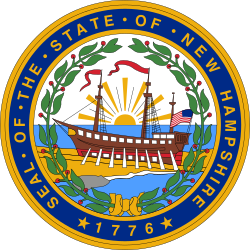| |||||||||||||||||
| |||||||||||||||||
 County results Harriman: 50–60% Sinclair: 50–60% | |||||||||||||||||
| |||||||||||||||||
| Elections in New Hampshire |
|---|
 |
The 1868 New Hampshire gubernatorial election was held on March 10, 1868, in order to elect the governor of New Hampshire. Incumbent Republican governor Walter Harriman won re-election against Democratic nominee John G. Sinclair in a rematch of the previous election. [1]

